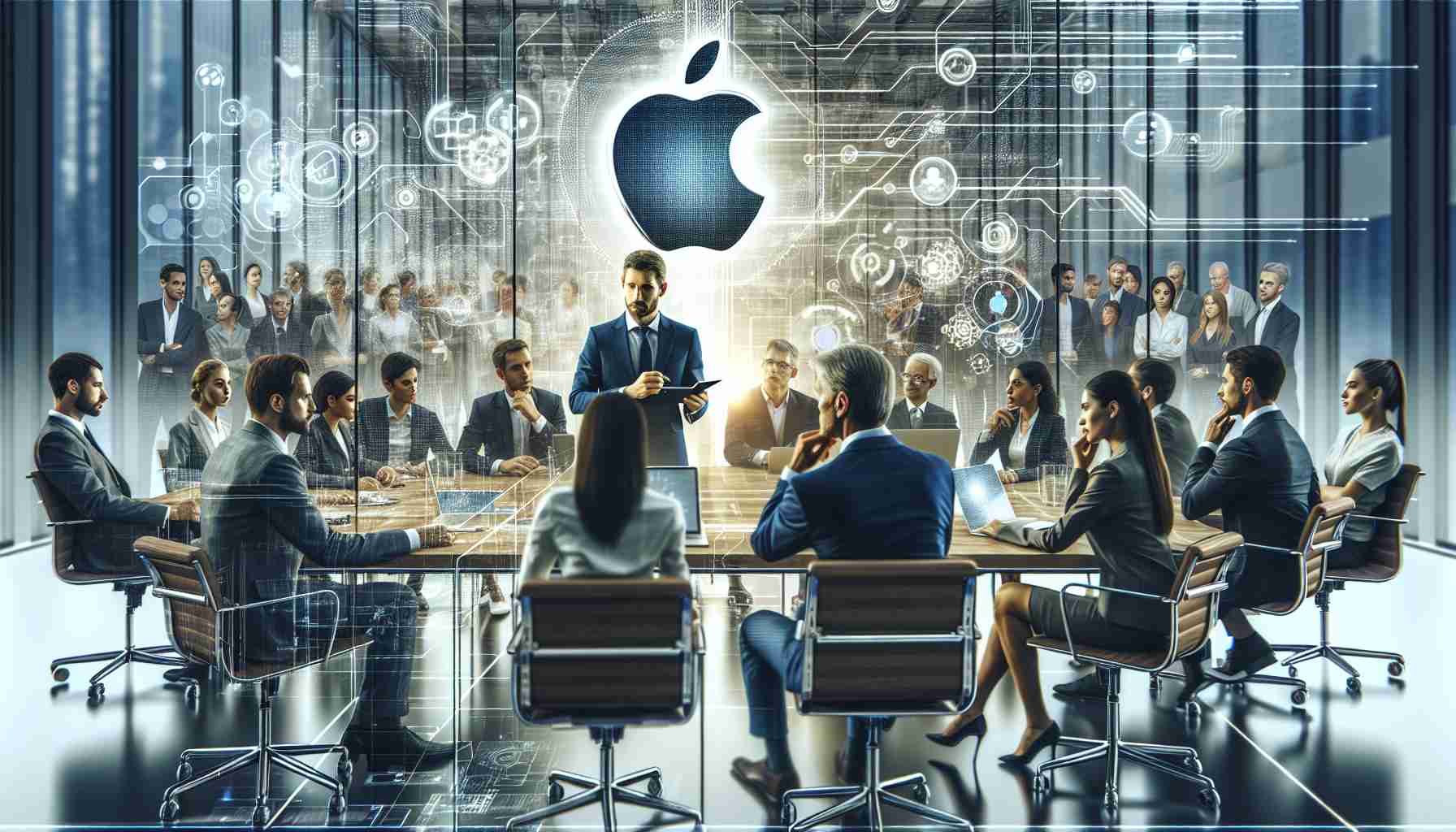Exploring Potential Successors to Tim Cook at Apple
As Apple’s current CEO, Tim Cook, continues his influential tenure, which began in 2011, whispers about who might succeed him have gained momentum. Cook has been instrumental to Apple’s growth, having overseen the launch of the Apple Watch and the company’s expansion into streaming services and augmented/virtual reality technologies. Yet, the question of who may fill Cook’s shoes reflects a lingering sense of uncertainty.
With Cook nurturing a stable core of executives, the spotlight has occasionally shifted to Jeff Williams, Apple’s Chief Operating Officer, as a possible heir to the throne. Despite his experience, there is hesitation about his age and future commitment to a long-term leadership role. In the search for a leader possessing both the skill and dedication required for Apple’s continued prosperity, the discussion has expanded to include John Ternus, the mastermind behind hardware engineering. Ternus’s teamwork ethic and product development prowess make him a worthy candidate for the chief executive role, although some are skeptical of his readiness and innovative vision for the company.
Apple faces considerable challenges that will test its next CEO, including regulatory scrutiny and competition in global markets, like China. During a revealing conversation on Dua Lipa’s podcast “At Your Service,” Cook shed light on the careful grooming of internal candidates for the company’s future leadership. He emphasized a deep-seated strategy that focuses on preparing a diverse pool of successors.
Analysts like Toni Sacconaghi of Sanford C Bernstein have raised the issue of succession among investors, questioning the apparent opacity surrounding the exposure and grooming of Apple’s future leaders. This uncertainty begs a critical inquiry: Does Apple have a robust and strategic succession plan in place? The need for clear direction is crucial as Apple faces the responsibility of maintaining its innovative legacy in an ever-evolving market.
Challenges and Controversies in Apple’s Leadership Transition
The successor to Tim Cook as CEO of Apple will need to navigate several key challenges associated with this role. One major challenge is sustaining innovation in a post-Cook era. Cook himself had to follow the legendary founder, Steve Jobs, a visionary known for his groundbreaking products. The next CEO must similarly inspire and lead Apple’s innovation to maintain its competitive edge, especially with rivals in the tech industry constantly pushing boundaries.
Another significant challenge is managing the global supply chain, which has been under stress in recent years due to geopolitical tensions and the COVID-19 pandemic. Balancing production while safeguarding the ethical sourcing of materials and ensuring the fair treatment of workers across the globe will be a vital responsibility.
Regulatory scrutiny presents a continuous hurdle, with antitrust concerns and privacy issues at the forefront. The new leader will have to steer Apple through a landscape of increasing regulations, particularly in markets like the European Union, which is actively working on legislation like the Digital Markets Act and the Digital Services Act to regulate large tech companies.
Moreover, competition in global markets like China, where local players like Huawei and Xiaomi are strong, will be a battleground. The next CEO will have to maintain Apple’s strong brand while finding ways to grow in these competitive environments.
Finally, maintaining public trust amid controversies, such as those over App Store policies and the right to repair, will be essential. Dealing effectively with these controversies requires a combination of legal acumen, public relations skills, and genuine corporate responsibility.
Succession Plan and Criteria for the Next CEO
In terms of succession planning, the most crucial question is whether Apple has a well-defined strategy for grooming its next set of leaders. It is clear from Cook’s comments that there is an intentional effort to prepare internal candidates. However, the details of this succession plan are not public, fueling investor concerns like those expressed by Toni Sacconaghi.
The advantages of having a robust succession plan include continuity of vision, smooth transition of leadership, and readiness to face future challenges. Internally-groomed successors are usually well-acquainted with the company’s culture and operations, possibly ensuring better stability.
On the downside, an internal focus for succession might lead to a narrower view, potentially stifling innovation if new ideas and perspectives are not sufficiently incorporated. Balancing internal expertise with fresh outlooks is critical to sustain corporate dynamism.
As Apple continues its global dominance in various tech sectors, finding the right leadership personality to succeed Tim Cook will be paramount. Investors and the wider public will be observing how the company approaches this inevitable transition, which could define the future trajectory of the iconic brand.
For more information about Apple, interested individuals can visit the official Apple website at: Apple.
The source of the article is from the blog oinegro.com.br
